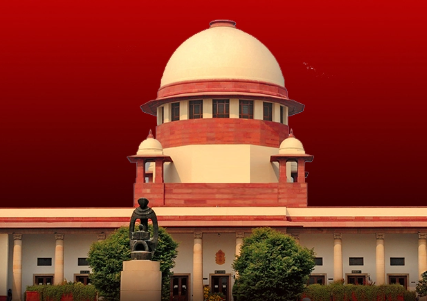Supreme Court Ruling on Challenge to ‘Socialist’ and ‘Secular’ in Preamble
The Supreme Court recently dismissed petitions challenging the 42nd Amendment and added the words “secular” and “socialist” to the Constitution’s Preamble in 1976. The Court affirmed that these terms are widely accepted in Indian society.
Background of the 42nd Amendment
The 42nd Amendment was enacted during the Emergency period in India, which aimed to reinforce the values of secularism and socialism. The amendment faced scrutiny regarding its legitimacy and timing.
The Court ruled that Parliament can amend the Preamble under Article 368. It stated that the original adoption date of the Constitution does not restrict Parliament’s power to make changes. The bench included Chief Justice Sanjiv Khanna and Justice Sanjay Kumar.
Arguments Against the Amendment
The Court found the arguments challenging the amendment weak. It noted that the Constituent Assembly did not initially include these terms. However, the Constitution is a living document, adaptable to societal needs.
About Secularism
The Court clarified that the interpretation of secularism evolved over time. Initially, it was viewed as ambiguous. Today, it signifies that the state treats all religions equally, without favouring or discriminating against any.
The term “socialism” reflects the state’s commitment to welfare. The Court stated that it does not limit the economic policies of elected governments. Governments can choose their economic structures, provided they respect fundamental rights.
Debate on Emergency Context
The Court rejected claims that the amendment’s context during the Emergency invalidated it. The matter had been discussed in Parliament in 1978. The petitions were filed 44 years later, raising questions about their relevance.
The Court concluded that “secular” and “socialist” are widely understood by the Indian populace. These terms have not obstructed government actions, as long as they align with fundamental rights and the Constitution’s core principles.
Important Facts for Exams:
- 42nd Amendment: Enacted in 1976 during India’s Emergency, it added “secular” and “socialist” to the Constitution’s Preamble, reinforcing these values despite challenges regarding its legitimacy and timing.
- Article 368: This constitutional provision empowers Parliament to amend the Constitution, including the Preamble. The Supreme Court affirmed that the original adoption date does not restrict this power.
- Constituent Assembly: This assembly initially omitted the terms “secular” and “socialist” from the Preamble. However, the Supreme Court recognised the Constitution as a living document, adaptable to society’s evolving needs.
- Emergency Period: The 42nd Amendment was enacted during a controversial Emergency in India. The Supreme Court dismissed claims that this context invalidated the amendment, noting prior parliamentary discussions in 1978.
Month: Current Affairs - November, 2024
Category: Legal & Constitution Current Affairs



Bhupendra Kumar Das
January 25, 2025 at 6:29 pmTaking advantage of National emergency the 42nd amendment was done with a view to provide more benefits to a particular section of the society resulting increase ofsocial unrest in the country.